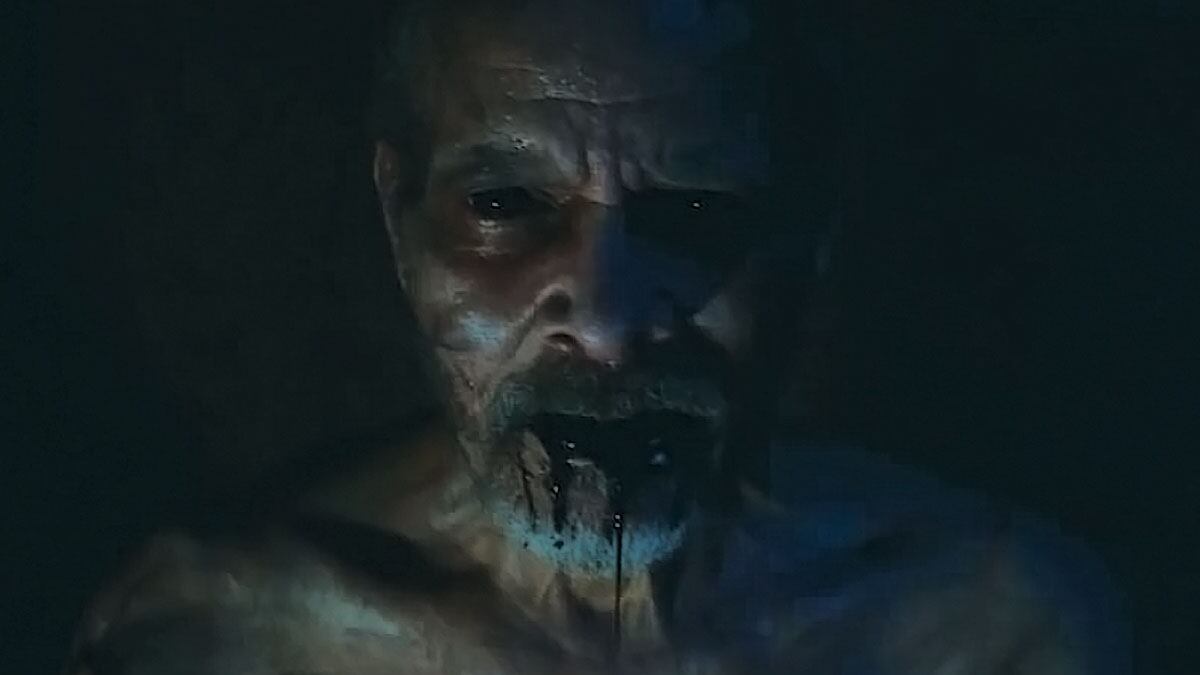Whether masked killers, undead hordes or rampaging beasts, good horror monsters give their victims—and their audience—something physical to fear. Equally important, their absence from the screen grants filmgoers a brief sense of relief.
Director Trey Edward Shults' harrowing, impossibly bleak It Comes at Night—which had its world premiere in April at the Overlook Film Festival at Mount Hood's Timberline Lodge—never even hints at relief. The monster here isn't physical, or even specifically defined. It's not even the mysterious plague that has seemingly decimated the world, though that's plenty scary. The monster here is the knowledge that, at any point, you have to choose between doing right by others or watching your child choke on his own blood before putting a merciful bullet in his head just because you let somebody in your sanctuary.
It's fucking terrifying.
From the very first frame, Shults locks you in the boarded-up home of its central trio: Paul (Joel Edgerton), his wife (Carmen Ejogo) and their 17-year-old son Travis (Kelvin Harrison, Jr.). Having just incinerated a loved one, the family tries their best to go back to Paul's strictly established routine, which includes chores, prescribed bedtimes and family meals: anything to keep some semblance of normalcy in their hidden home, the film's sole setting.
From what the audience can gather, the world around the family has succumbed to a plague. We have no idea how long it's been, and it doesn't matter. They're at the end of days, and the family has holed up in their boarded-up home armed with guns, gas masks and what little shared humanity they still possess.
When a stranger appears at their doorstep seeking help for himself and his young family, a fragile trust is formed. It's not long before isolation, paranoia and fear of painful death take over, threatening to undo the careful steps that have helped the characters survive thus far.
This is not a film of jump scares or rampant violence. Rather, Shults—who explored frayed family dynamics very differently in last year's acclaimed Krisha—allows everything to unfold with subtly ratcheting tension. The cast is uniformly great, though Harrison, as a kid forced to confront mortality, coming of age and the influence of multiple alpha father figures, is the standout, effectively shouldering much of the film's point of view.
Shults, meanwhile, sticks largely to natural lighting, creating a gothic lantern-lit woodblock aesthetic akin to last year's horror standout The Witch. It's fully immersive in a way that makes you feel complicit in everything on screen.
It Comes at Night lingers on the consequences of each individual choice the survivors makes, most of them soul-crushing. It's a film that immediately lodges under your skin through to the gut-wrenching finale that sticks with you long after the lights thankfully come up. It's the minimalist apocalyptic nightmare we never knew we needed, and a master class in lingering, universal fear.
SEE IT: It Comes at Night is rated R. It opens Friday at Bridgeport, Cedar Hills, City Center, Clackamas, Division, Eastport, Fox Tower, Hollywood, Tigard, Vancouver.
